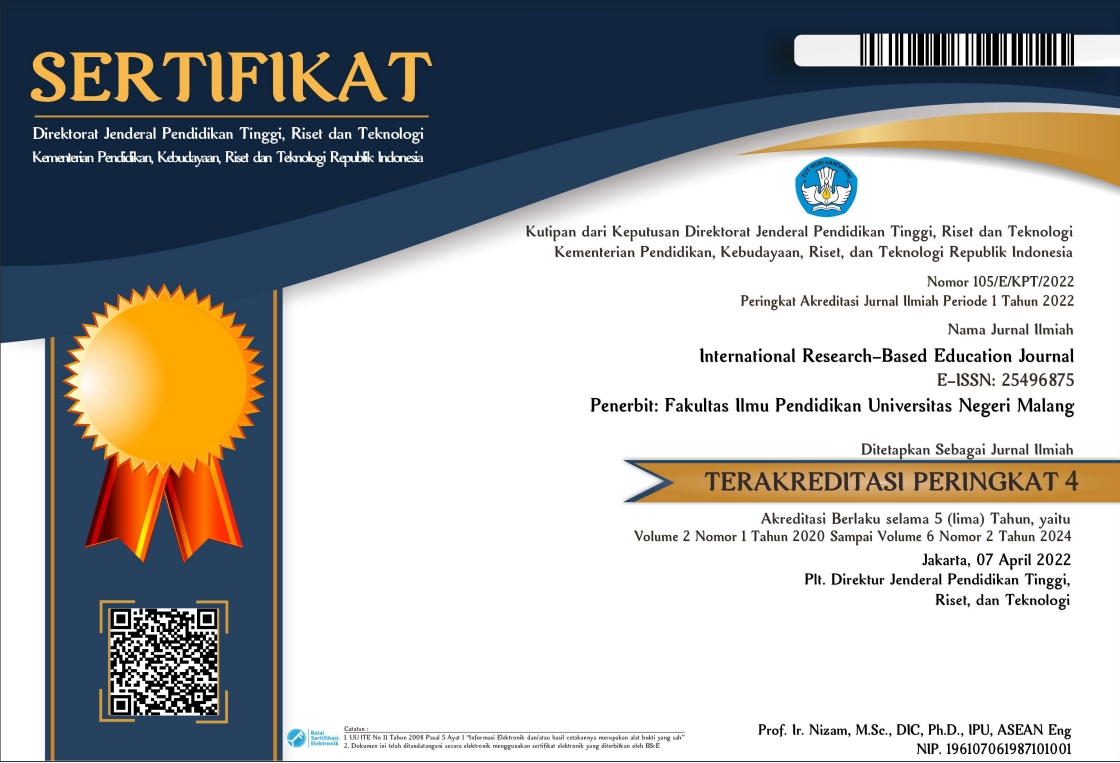Validity and Reliability of Least Preferred Coworker (LPC) Scale
Abstract
Keywords
Full Text:
PDFReferences
Ashour, A. S. (1973). The Contingency Model of Leadership Effectiveness: An evaluation. Organizational Behavior and Human Performance. 9: 339-355.
Ayman, R. (2002). Contingency model of leadership effectiveness: Challenges and achievements. In L. L.
Fiedler, F. E. (1953) Quantitative Studies in the Role of Therapists' Feelings Toward Their Patients. Psychotherapy Theory and Research. New York: Ronald Press
Fiedler, F. E. (1954). Assumed Similarity Measures as Predictors of Team Effectiveness. Journal of Abnormal and Social Psychology, 49(1): 381-388.
Fiedler, F. E. (1958). Leader Attitudes and Group Effectiveness. Urbana, III: University of Illinois Press.
Fiedler, F. E. (1967). Theory of Leadership Effectiveness. New York: McGraw-Hill.
Fiedler, F. E. . (1971). Validation and extension of the Contingency Model of Leadership Effectiveness: A review of empirical findings. Psychological Bulletin. 76: 128-148.
Fiedler, F. E., and Chemers, M. M. (1974). Leadership and Effective Management Glenview. Illinois: Scott-Foresman.
Fiedler, F. E., & Chemers, M. M. (1984). Improving leadership effectiveness: The leader match concept. New York: Wiley.
Graen, G. B., Alvares, K., Orris, J. B., and Martella, J. A. (1970). Contingency Model of Leadership Effectiveness: Antecedent and evidential results. Psychological Bulletin. 74: 185-296.
McMahon, J. T. (1972). The Contingency Theory: Logic and method revisited. Personnel Psychology. 25: 697-710.
Mitchell, T., Biglan, A., Oncken, G. R., and Fiedler, F. E. (1970) The Contingency Model: Criticism and suggestions. Academy of Management Journal. 13: 253-267.
Posthuma, A. B. (1970). Normative Data on the Least Preferred Coworker Scale (LPC) and the Group Atmosphere Questionnaire (GA). Seattle: University of Washington.
Rice, R. W. (1978a). Psychometric Properties of the Esteem for Least Preferred Coworker (LPC Scale). The Academy of Management Review, 3(1): 106-118.
Rice, R. W. (1978b). Construct validity of the Least Preferred Co-Worker (LPC) Scale. Psychological Bulletin. 85: 1199-1237.
Saiful, Bolotio, R., dan Ardianto. (2017). Pengaruh Kepemimpinan Kontigensi Model Least Preferred Coworker dan Iklim Sekolah terhadap Peningkatan Produktivitas Kerja Guru Madrasah Ibtidaiyah di Kota Bitung. Journal of Islamic Education Policy. 2(2): 140-151.
Schriesheim, C. A. and Kerr, S. (1977). Theories and measures of leadership: A critical appraisal of current and future directions. In J. G. Hunt and L. L. Larson (Eds.), Leadership: The Cutting Edge Carbondale, Illinois: Southern Illinois University Press.
DOI: http://dx.doi.org/10.17977/um043v4i1p25-34
Refbacks
- There are currently no refbacks.

This work is licensed under a Creative Commons Attribution-NonCommercial-ShareAlike 4.0 International License.










1.png)



